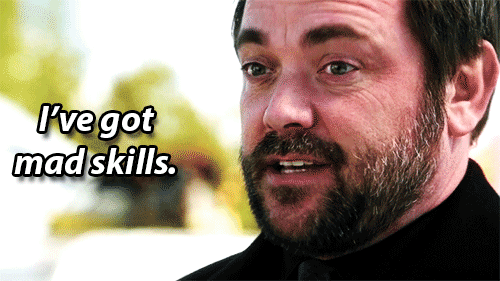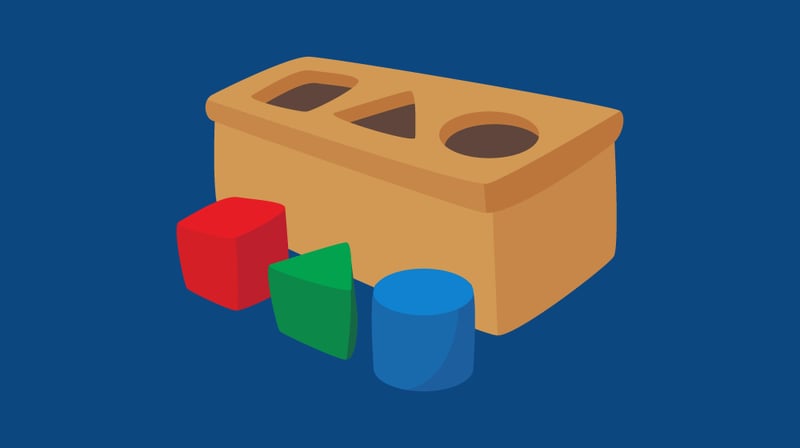As student affairs professionals, we know that college students gain valuable skills and knowledge through participation in co-curricular experiences — such as service-learning, undergraduate research, campus employment, membership in student organizations, and more.
We see how students develop into confident leaders, learn how to better manage their time, and use critical thinking skills to solve problems like “how can we improve turnout at our next student government election?”
But, while these skills may seem obvious to us, our students often complete a program or leadership experience and move on to the next one — without taking a pause to think about the essential workforce-ready skills they’ve developed along the way.
This pause (or rather, lack thereof) may seem harmless at first, but it can be a fatal flaw of any learning opportunity. The disconnect between student experiences and skills articulation is a growing area of concern for institutions and their students.
Just a decade or two ago, the admissions process was filled with prospective students asking questions like “how big are the dorm rooms?” and “what is campus life like?” Now, questions such as “how soon should I start doing internships?”, “can I meet with career services during my campus visit?”, and “how will this institution help me get a job after graduation?” are more likely at the forefront of our new students’ minds, whether or not they voice these inquiries during campus tours.
As more students enter our institutions with a career mindset, it is imperative that institutions not only provide students with valuable experiences but also the training and tools to reflect upon and articulate their learning to employers.
Hopefully, you’ve already designed your co-curricular offerings with some basic learning outcomes that you assess for your own benefit. After all, being able to say facts like “80% of students reported they gained leadership skills” is great for marketing and recruitment!
But, for far too long, assessment of outcomes has been viewed solely through that internal lens. To justify our value or to make requests for additional funding, surveys are sent or focus groups are conducted to confirm that program outcomes were met.
Instead of only focusing on how to achieve positive outcomes for our own purposes, SApros should consider how to better assess student skill development. The solution? Building student-focused skills assessment right into your program design! By building in opportunities to practice, reflect, and practice some more, our students can walk away knowing how to articulate the skills they’ve gained.
Here are some ideas for how to build on your program’s assessment plan and help your rockstar students become confident in articulating the skills they learned outside of the classroom:
1. Design a student skills development plan
I’m not saying to totally throw your current learning goals or assessment plan out the window! Rather, I want you to build on your existing program outcomes. For every program outcome you have, there should be a corresponding skill for students to learn.

For example, if you facilitate a service-learning program and one of its outcomes is “students will develop an understanding of social and civic responsibility,” then a corresponding student skill could be “students use communication skills to facilitate civic dialogue.”
Or, say you coordinate your campus orientation leader program. If one of your outcomes for t is “leaders will demonstrate commitment to creating a safe learning environment for new students,” then a corresponding skill might be “leaders manage conflict through mediation techniques and application of campus policies.”
Once you’ve identified the specific skills you hope students are achieving, you should then design a plan to make them overtly aware of these skills.
2. Scaffold opportunities for students to practice articulating their skills
When students begin your program, be upfront about the specific skills the program aims to help them foster by sharing your “student skills development plan.” Beyond that, you need to convince students that they will have numerous opportunities to not only develop new skills but also practice talking about them.
For example, I lead a first-year student research program that introduces students who are traditionally underrepresented in higher education to the value of research through a year-long paid research experience. To first-year students, “research” usually sounds both compelling and overwhelming. Breaking down the specific skills that they will develop over the year through the research program is where I come in.
To do this, I scaffold different opportunities throughout the year dedicated to reflecting on the skills developed and how they can talk about those skills in a marketable way!
One of the program’s outcomes is that “students will begin to understand practical work for scholarship in their field.” Based on that, a specific skill is “the ability to effectively communicate the importance of their research to their field and the general public.” To practice this, I host sessions called Research Roundtables during which I ask students to reflect on their research so far and come prepared to share a 1-2 minute elevator pitch with their peers.
When we start the session, I always set the stage by reminding students of why this session is important. I give myself just a few minutes to revisit the specific skills that the students are working to develop through our program. This also creates space for me to remind the students that this experience is contributing to their own personal and professional growth.
My Research Roundtable sessions are part of my scaffolded practice plan, building off one another and ultimately resulting in a professional presentation at our campus research colloquium in the spring. By the time we get to the presentation, students are able to confidently disseminate their research while also articulating the scholarly communication skills they developed with a tangible example.
Roundtable conversations may also work for you, or, if not, there are several other ways to build scaffolded practices into your program:
- Require bi-weekly blogging to encourage students to reflect on their skills in writing. These blog reflections can be a powerful way for students in your program to learn and grow from one another in a safe space. Consider using an easy site like WordPress or your campus’ LMS to create a blog that’s only viewable to the students in your program. And be sure to provide an option for a student to keep a particular post private, should they request it,
- Utilize FlipGrid (or another video discussion platform) to help students design elevator pitches at the beginning, middle, and end of your program.
- Host a peer-to-peer interview event during which you provide guided questions for duos to answer that align with your skills development plan.
- Invite alumni of your program to visit for a panel discussion. Start the panel with some prompted questions like “what was a key skill you developed during your time on the campus programming board?” or “how do you explain the value of your experience when you are interviewing for a job?” After you ask a few prompted questions, encourage current students to pose their own. Seeing alumni talk about their skills and success can help your current participants visualize the value of your program and how their experiences can be applied post-graduation.
3. Collaborate with other programs on a Skill Seeker Campaign
As you get a good idea of the specific skills your students are gaining from your programming, consider collaborating with other professionals on campus — in your office and beyond — to collectively market your opportunities and the skills you can help students develop.
For example, the University of North Carolina Wilmington implemented a Skill Seeker Initiative. Its designers created a holistic look at campus opportunities and personal interests, then mapped them out into a variety of skills categories — including critical thinking, teamwork and collaboration, and leadership.
You could take it a step further by aligning co-curricular programs to specific skills sought in different professional industries. If, for example, students can clearly see how participating in student government will help them develop “soft skills” that are key to a career in business administration, that’s a win — for the student, for employers, for the institution, and for you!

As you begin to market these skill development opportunities more widely, remember to follow through on that promise by supporting students’ growth until at least through graduation.
4. Be intentional with the end of the experience
Just as you would plan scaffolded opportunities for students to practice articulating newly developed critical thinking or teamwork skills, you will need to plan an intentional “end of experience” session as well.
Whether your program has a clear stopping point or students end the experience on their own unique timelines, an end-of-experience session needs to be provided to each participant. Don’t confuse these sessions with a year-end celebration. By all means, have your end-of-year bash with ice cream sundaes, but be sure to plan a separate end-of-experience session.
The goal of an end-of-experience session is to help your students practice metacognition. You should help students through a final exercise to reflect upon and articulate the skills they developed throughout the experience. Provide space for them to connect the skills to other experiences they have had on and off-campus. You should ask them to map out how these skills will connect to a future career they are considering.
This type of reflection and skills articulation can be done by having students free-write, journal, or work in small groups to verbally communicate their skills to one another.
Finally, conclude the session by having students complete a worksheet that they can take with them and file away as a resource to use when they eventually apply for internships or jobs.
This worksheet could ask them to:
- Identify skills developed during the experience, specifically articulating how each skill was developed and how it’s professionally valuable to them.
- Write a 4-5 sentence elevator pitch they could use when someone asks about the experience. Prepare them to respond to questions like, “what did you do during your time as president of the Cultural Affairs Club?”
- Identify three personal or professional accomplishments from their experience that they are most proud of.
While you may hope that students will take time to do this type of reflection on their own, there is no guarantee they will. As students balance their curricular, co-curricular, and personal obligations, they’re typically quick to move onto the next task or opportunity before they’ve fully processed the fantastic experience they just had.
But by building in an end-of-experience session, you can take comfort knowing that you have done your part in helping a student not only develop skills but in learning how to articulate (and document) those skills in a meaningful way.
As designers and facilitators of co-curricular learning opportunities, we have the ability to guide students toward greater professional growth by helping them consistently reflect on the skills they develop outside of the classroom. By expanding our assessment efforts to focus on student skills and implementing scaffolded programming to reflect and practice articulating skills, we can help better prepare our students for their future careers.
How else have you helped students practice skills articulation? We’d love to hear your stories! Connect with us on Twitter @themoderncampus and @lindseygutsch.





